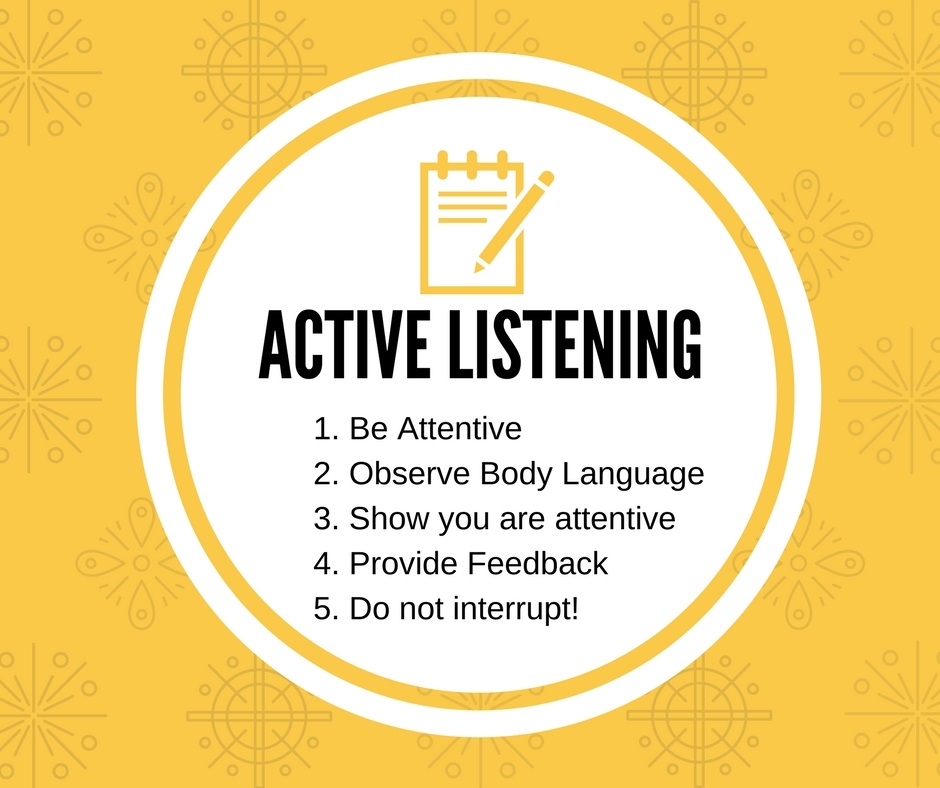Importance of Active Listening in Communication
“When you talk, you are only repeating what you know. But if you listen, you may learn something which you don’t know.”
Women often say that their husbands are the best secret keepers – they do not tell anyone because they themselves did not listen in the first place! As we are conditioned since childhood to put our point across first, we have lost the important skill to listen. Many successful CEOs when asked: “What is the reason behind your success?” replied that they were good listeners. As leaders, teachers, or even parents, it is very important to practice active listening with the other person while communicating else, we would never learn anything new.
According to research, an average person unlocks and checks his mobile phone around 110 times per day. In today’s electronic age, we get so easily distracted by gadgets that it is very difficult to focus on one thing at a time. It is not uncommon to see people checking their emails and responding to messages while sitting in important meetings and as a result, the message of the speaker falls on deaf ears.
The way to improve your listening skills is to practice “active listening” wherein you make a conscious attempt to not only hear the words being said but also to comprehend the complete message behind the words.
Here are a few tips for you to practice active listening:
Be attentive: In order to practice active listening, you would have to listen to the other person very carefully. Look at the speaker directly and put aside any distracting thoughts. Also, avoid being distracted by environmental factors such as mobile phones and side conversations. Always keep your mobile on silent or vibrate mode during important conversations.
Observe the person’s body language along with verbal cues.
Show that you are attentive: Use your body language and gestures to show you are interested in listening to what the other person is saying. Nod often, make sure your posture is open and encourage the speaker to continue with small verbal acknowledgments.
Provide Feedback: As an active listener, paraphrase what has been said and check for understanding to be on the same page as the speaker. Also, try to ask questions about any points you are unclear about while summarizing the speaker’s key points at the end.
Do not interrupt the speaker while he is talking and allow them to complete their thought before asking questions. Many times, if you interrupt in the middle, the speaker can lose their chain of thoughts thus leading to loss of important information from the overall message.
Start using these active listening tips today to become a better listener, a better learner, and a better communicator.
Suggested Reading: 7 Most Effective Public Speaking Tips for Leaders and Managers
About the Author
Puneet Wadhwa, the author of this blog – Speak to Succeed! is an IT Business Executive by profession, and a Public Speaker and Leadership trainer by passion. He has been professionally speaking for many years and has won several awards for his public speaking engagements. He presents corporate trainings and seminars to corporations and associations whose people want to speak and lead effectively. To contact Puneet, email him at pwadhwaspeaks@gmail.com or fill out the contact form at https://www.speaktosucceed.in/about-me/.





